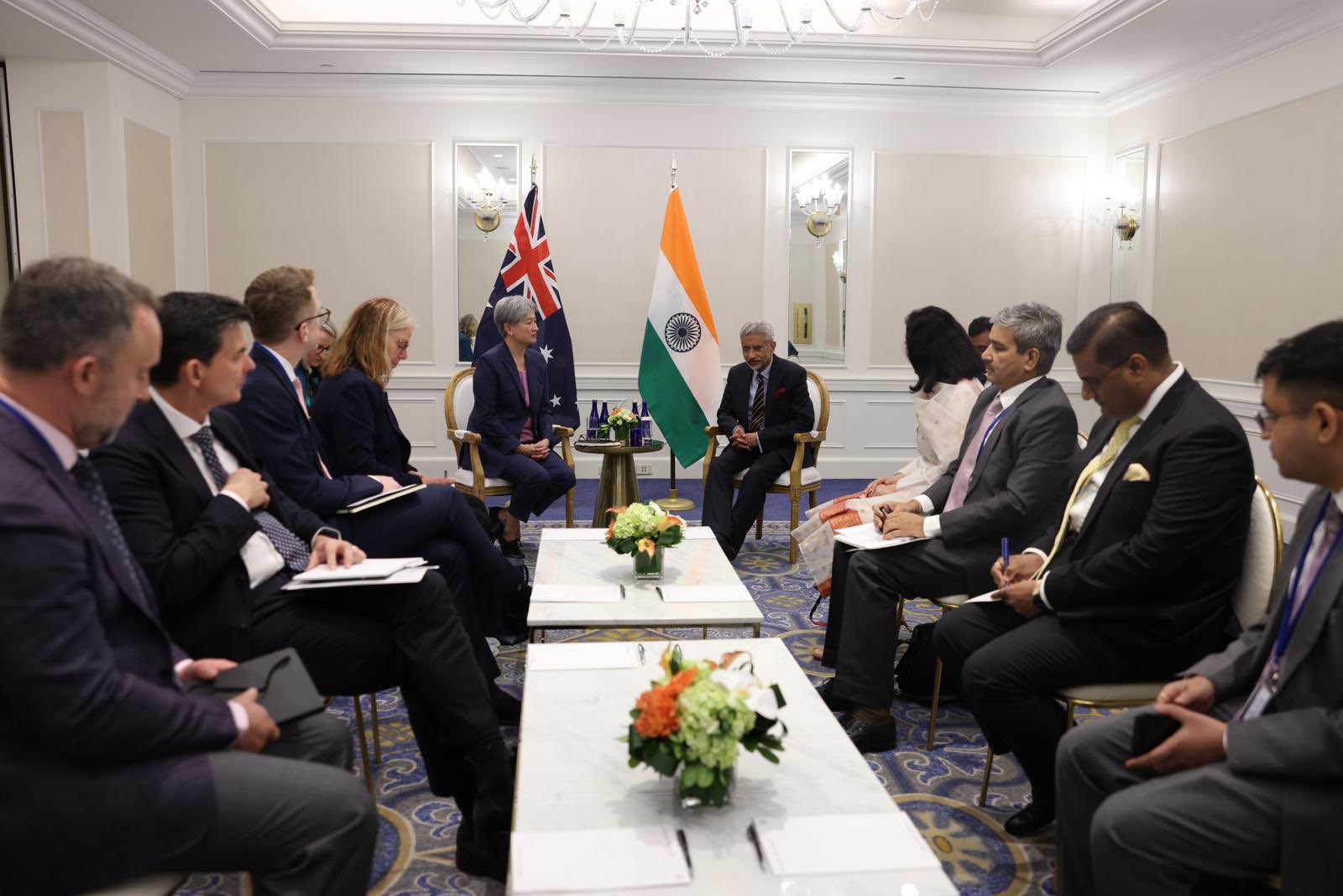Australian Foreign Minister Penny Wong, in her address at the 78th session of the United Nations General Assembly, unequivocally endorsed India’s bid for a permanent seat at the United Nations Security Council (UNSC).
This endorsement is part of Australia’s commitment to pushing for comprehensive Security Council reforms to make the international body more representative and effective.
During her address, Minister Wong underscored the importance of greater permanent and non-permanent representation for regions that have historically been underrepresented at the UNSC. She specifically called for permanent seats to be granted to two Asian powerhouses, India and Japan, acknowledging their vital roles in shaping the world order.

“For UNSC’s contribution to African Union-led operations. Our commitment to peace and security is why Australia seeks a seat in the Security Council for the year 2029-30. And it is why we pursue Security Council reforms.”
“We must ensure greater permanent and non-permanent representation for Africa, Latin America, Asia, including permanent seats for India and Japan. And we must demand more of permanent members, including constraints on the use of veto,”
she passionately articulated.
Australia’s endorsement of India’s bid aligns with a growing international consensus on the need to reform the UNSC to reflect contemporary geopolitical realities. Portuguese President Marcelo Rebelo de Sousa, during his address at the UNGA session earlier in the week, also voiced support for India, alongside Brazil, to be granted permanent membership in a reformed Security Council.
“The concept of security council corresponds to a world that no longer exists.”
“Portugal has defended that countries like Brazil and India become permanent members. This decision should be made. These countries cannot be ignored,”
President Rebelo de Sousa remarked, emphasizing the imperative of acknowledging the evolving global landscape.
Further bolstering India’s quest for a permanent UNSC seat, Turkish President Recep Tayyip Erdogan expressed his nation’s pride in India’s potential inclusion. During the G20 Leaders Summit held in New Delhi, President Erdogan articulated a clear stance: “We would be proud if a country like India became a permanent member of the UN Security Council.”
He also called for a broader perspective, highlighting that the world extends far beyond the five current permanent members of the UNSC (the United States, United Kingdom, France, China, and Russia).
Reforming international institutions to reflect the contemporary global landscape has been a persistent theme in India’s foreign policy under Prime Minister Narendra Modi.
During the G20 Leaders Summit, Prime Minister Modi reiterated his stance on adapting global systems to the “realities of the present.” He pointed to the disparity between the world’s changed dynamics and the stagnant composition of the UNSC.
PM Modi emphasized the need for openness to change and adaptation, citing the proliferation of regional forums that have demonstrated their effectiveness in recent years. He made a compelling case for reshaping global structures to better serve the needs and aspirations of the international community.
Australia’s endorsement, along with other nations, underscores the growing consensus on the imperative of reforming the UNSC to ensure a more inclusive, representative, and effective international body. As India’s bid for a permanent seat gains momentum on the global stage, the call for reform continues to echo through the halls of the United Nations, reflecting the evolving dynamics of the modern world.
Support Our Journalism
Global Indian Diaspora needs fair, non-hyphenated, and questioning journalism, packed with on-ground reporting. The Australia Today – with exceptional reporters, columnists, and editors – is doing just that. Sustaining this needs support from wonderful readers like you.
Whether you live in Australia, the United Kingdom, Canada, the United States of America, or India you can take a paid subscription by clicking Patreon. Buy an annual ‘The Australia Today Membership’ to support independent journalism and get special benefits.





